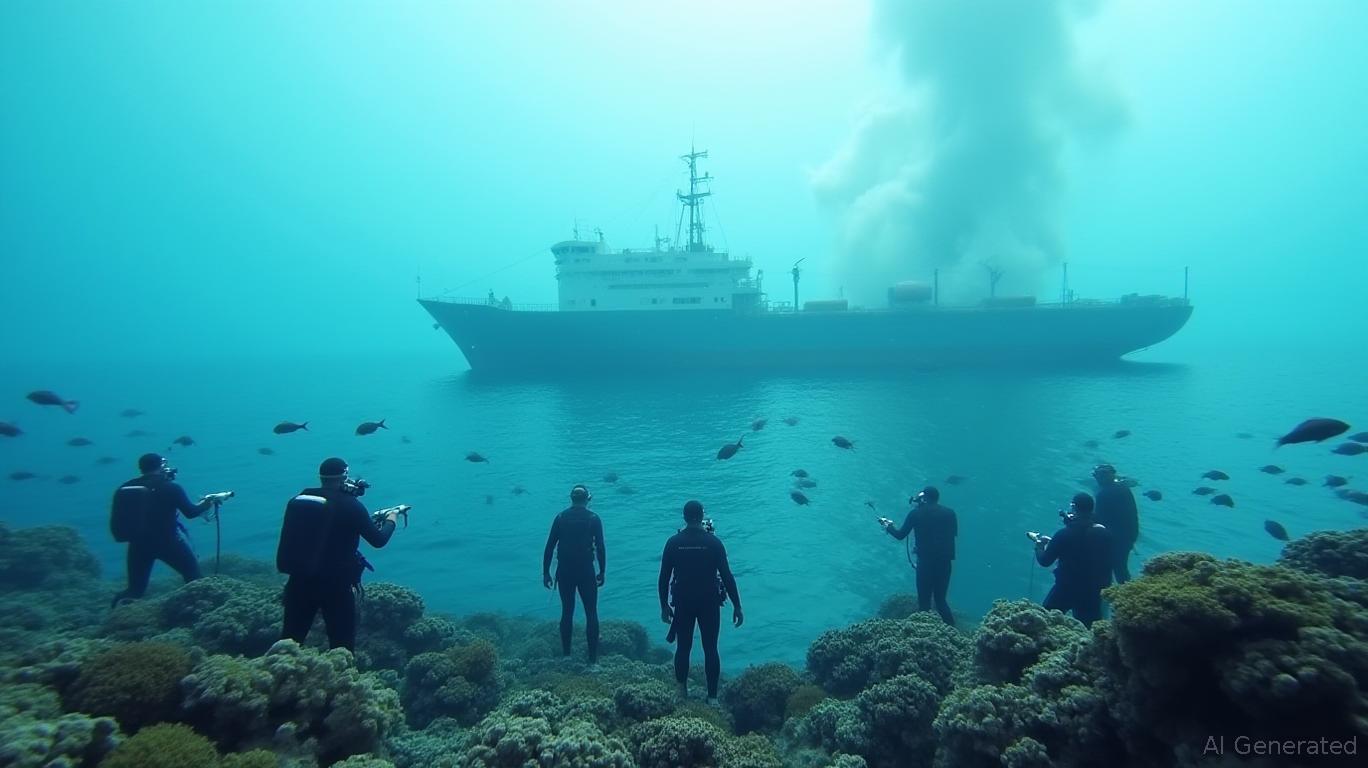Is Enhancing Ocean Alkalinity a Solution for the Planet That Won’t Harm Marine Ecosystems?
- Scientists propose boosting ocean alkalinity to enhance CO2 absorption, aiming to mitigate climate change by leveraging seawater's chemical properties. - Adding crushed limestone or alkaline materials could form stable carbonates, potentially removing significant atmospheric CO2 and expanding oceans' role as carbon sinks. - Experts debate scalability and ecological risks, cautioning that pH alterations might disrupt marine ecosystems, including coral reefs and shellfish populations. - The study emphasize
Researchers have introduced an innovative strategy to address climate change by boosting the ocean’s natural carbon dioxide absorption through increased alkalinity. As outlined in a recent
This method consists of modifying the ocean’s pH by adding materials such as ground limestone or other alkaline substances, which interact with dissolved carbon dioxide to create stable carbonate forms. In theory, this could extract large quantities of CO2 from the atmosphere and lock it away in the ocean for long durations. The Coin-Turk article notes that such measures might expand the oceans’ current capacity to absorb carbon, which now takes in about one-fourth of emissions produced by humans.

Supporters point to the scalability of this approach and its compatibility with natural oceanic processes, suggesting it could work alongside existing carbon capture solutions. On the other hand, opponents stress the importance of thorough environmental evaluations to understand the potential long-term effects on marine habitats. Adjusting alkalinity could upset sensitive chemical equilibriums, posing risks to coral reefs, shellfish, and other sea creatures that rely on stable pH conditions. The research highlights these unknowns and recommends more studies to improve the method and limit negative outcomes, as mentioned in the Coin-Turk article.
This breakthrough comes at a crucial moment, with global emissions still climbing despite worldwide climate initiatives. Although the ocean alkalinity approach is still experimental, it signals a move toward broader geoengineering tactics. Some specialists warn that such interventions should not distract from the immediate need to cut fossil fuel use, but they could offer additional support in the overall fight against climate change, according to the Coin-Turk article.
Disclaimer: The content of this article solely reflects the author's opinion and does not represent the platform in any capacity. This article is not intended to serve as a reference for making investment decisions.
You may also like
ALGO - Down 44.96% Over the Past Year as Market Fluctuates and Results Vary
- On Oct 28, 2025, ALGO fell 0.86% in 24 hours to $0.1843, contrasting with a 1.49% weekly gain but a 44.96% annual drop. - The decline reflects macroeconomic pressures, regulatory scrutiny, and sector-wide volatility, undermining investor confidence. - Technical analysis shows range-bound trading, with investors awaiting catalysts to break the consolidation phase. - Mixed fundamentals and structural challenges persist, as the asset struggles to regain stability amid shifting market dynamics.
$2.7 Trillion Wiped from Gold — Is Liquidity About to Flood into Bitcoin?
PunkVerse: A Capital Signal Behind the Global Rise of Experience Assetization

Bitcoin Updates: Rising Global Tensions Disrupt Bitcoin’s ‘Uptober’ Momentum as $100K Level Challenges Bullish Strength
- Bitcoin fell below $113,000 in October 2025 amid U.S.-China trade tensions and macroeconomic risks, defying its historical "Uptober" trend. - Record $19B in liquidations and 52% probability of breaching $100,000 highlight volatility, though $3.55B ETF inflows and corporate holdings growth signal institutional confidence. - BTC rebounded to $115,041 as trade tensions eased, with Standard Chartered's Geoffrey Kendrick suggesting $100,000 support may hold if macroeconomic conditions improve. - Mixed technic
